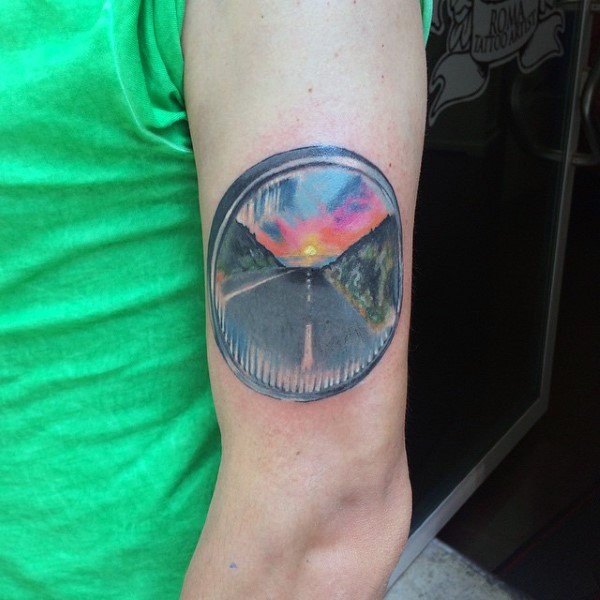
Road tattoos are commemorative, site-specific, community-based public artworks. “Tattoos are actually an act of ‘buying a unique skin’, and people are more willing to pay attention to their bodies and themselves after the ‘lockdown cool time’.Road tattoos are a result of my investigation into the intersection of memorials, ritual and public art coupled with the idea of repurposing a very common public space for art. “My clients are making more money, so they are more willing to spend money on tattoos,” he said.

Kuanyee Lee, whose main clientele is middle and high-income earners, said the growth in the economy in recent months has meant a big increase in work – he is fully booked for four months – and there had been some unexpected positive effects from the lockdowns. “I had to close my appointments because I have too many appointments and walk-ins.’’ There is a shortage of tattoo artists across Australia now,” Ms Dai said. “There are many overseas tattoo artists who are not working in Australia because of the pandemic. Since the lockdown ended, everyone has more spare money in their hands, and demand for tattoos has increased dramatically,” Jing Bing Ji said.ĭai Dai, from Chao Tuo Tattoo Shop, said she was busier now than before the lockdowns. “Many tattoo parlours or studios are hiring experienced tattoo artists. Photo: Miao Wu.ĭespite these challenges, there is an air of optimism amongst those in the industry. Tattoo artist Guo Dong Xia also had to be creative to make ends meet: “During the epidemic, tattoo artists can make money by helping others design pictures, although it earns less.”ĭuring the lockdown, Guo Dong Xia drew a lot of pictures and tried to improve his skills. “The tattoo industry is relatively ‘sticky’ – meaning as long as your tattoo service and skills are good enough, old customers will come back, but the challenge was to attract new customers.”

#LONG ROAD TATTOO HOW TO#
“I posted some teaching or analysis parts to show the level of tattoo skills, to attract peers to learn and teach customers how to choose pictures.” “I put some advertising on WeChat, Red Book, Instagram, Facebook, and other social media for clients from all over the world, to attract a new customers group,” Mr. Kuanyee Lee earned a small income teaching the basics of tattooing through online classes. The restrictions forced many artists to look for creative ways to keep their businesses alive.

“I lost at least $160,000 of income last year even though I reopened the shop for the last two months of the year.” “Since tattoo work requires close contact, it is relatively risky compared to other industries, so even after the lockdowns ended, many customers were still worried about the safety,” Mr Lee said. Kuanyee Lee from the Tattoo Association said, even once restrictions were eased last year, the industry’s recovery was slow. Tattooing, which requires close contact between the tattoo artist and the client, was considered very risky during the pandemic. “Many of my tattoo artist friends closed their studios or shops the pandemic … they had to close because they afford the expensive rent without any income.”Ī tattoo studio sits empty during the pandemic lockdowns, but the rent still had to be paid. “I applied for 50% off for rent relief, which relieved some pressure, but had to rely on savings to maintain my daily life,” said Liang Ren.

Many of Melbourne’s tattoo shops are small operators and so had no way to apply for the government subsidies available for small and medium-sized enterprises, though some did receive the $750 per week Job Keeper allowance. “My working time is 11 am to 5 pm, but I almost have to work overtime until seven o’clock,” Jing Bing Ji explained.ĭuring the depths of the pandemic, the future didn’t look as bright. He said he is now fully booked every day and extremely busy, not only with client appointments but also walk-ins. Australian tattoo culture is excellent, so there is no such thing as unwillingness to spend money on tattoos.” “Our business is very good, and the appointments are basically booked for the next month. “Although most tattoo shops are still operating, many tattoo artists have transferred from tattoo shops to personal studios.” Jin Bing Ji said. Jin Bing Ji, the owner of a tattoo studio in Hawthorn, in Melbourne’s inner east, believes the tattoo industry has largely recovered from the difficulties of the lockdowns.


 0 kommentar(er)
0 kommentar(er)
